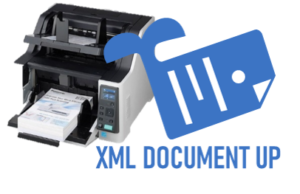Purchasing the taco on day one and throughout the rest of the month may have been the absolute best decision you could make. Maybe the smoothie wasn’t that good, and maybe you wouldn’t have had a good time if you had gone out for drinks with your friend. In this example, by purchasing the taco, your opportunity cost was not being able to purchase the smoothie later on.
When you calculate opportunity cost in business, you may become discouraged to make certain decisions because of what it may cost you upfront. This shows the importance of opportunity cost and why you should calculate opportunity cost in business. Keep https://kelleysbookkeeping.com/ in mind that short-term monetary costs could still mean long-term gains. In truth, nearly everyone engages in opportunity costs on a regular basis. Such costs are the potential missed opportunities resulting from opting for one thing over another.
Opportunity cost vs sunk costs
Although some investors aim for the safest return, others shoot for the highest payout. In contrast, opportunity cost considers the loss of potential returns from an alternative investment decision. While opportunity cost isn’t the same as risk, the two concepts provide a similar outlook on investments. Risk outlines the possibility that the return on investment (ROI) will be different than its initial predicted one, resulting in a loss of profit.
- In this example, you have sacrificed $10,000 each month because you did not calculate the opportunity cost of taking on the single client for the $50,000 monthly fee.
- As such, it is important that this cost is ignored in the decision-making process.
- Investing is all about decisions, and most investors can use all the help they can get.
- Many leading businesses have gotten to the top by making intelligent business decisions based on opportunity cost while their competitors did not.
- It’s in a stable industry environment with no short- or long-term threats.
- We’re transparent about how we are able to bring quality content, competitive rates, and useful tools to you by explaining how we make money.
«Sunk cost refers to the past costs that you have incurred,» says Ahren A Tiller, Esq., Bankruptcy Law Specialist. «Let’s say you’ve invested in company X but gained nothing. The money you spent is a sunk cost, and it can’t be recovered. You can’t do anything about it, making it irrelevant in your decision-making.» On the other hand, opportunity cost relates to the idea that the returns of a chosen investment will potentially be lower than the returns of the next best option. Therefore, opportunity cost represents the cost of inevitably choosing one option over the other, whereby the measurement becomes the metric you can use to make a decision.
Opportunity Cost Examples
Opportunity cost is a term that refers to the potential reward that you forgo when choosing one option over the next-best alternative. There’s no doubt that investing can be a nerve-wracking and tricky business. However, with the right precautions, it can also be extremely profitable.
What is Opportunity Cost?
Working with limited resources is one of the challenges that entrepreneurs must learn to love. There’s no shortage of pricing strategies and economic theories to create harmony out of a tight business budget. But as more opportunities arise to spend, save, or invest, you https://business-accounting.net/ need a clear-cut method of comparing your choices. While both risk and opportunity cost address a potential loss, risk compares the potential performance of an investment against itself, while opportunity cost compares the performances of two different investments.
What Is an Example of Opportunity Cost in Investing?
That’s a real opportunity cost, but it’s hard to quantify with a dollar figure, so it doesn’t fit cleanly into the opportunity cost equation. You chose to read this article instead of reading https://quick-bookkeeping.net/ another article, checking your Facebook page, or watching television. Your life is the result of your past decisions, and that, essentially, is the definition of opportunity cost.
Opportunity cost: The value of what you have to give up in order to get what you want
Opportunity cost is important to consider when making many types of decisions, from investing to everyday choices. Knowing how to calculate opportunity cost can help you accurately weigh the risks and rewards of each option and factor in the potential long-term costs of doing so. Risk evaluates the actual performance of an investment against its projected performance. It focuses solely on one option and ignores the potential gains from other options that could have been selected.
When making business decisions, you want to be sure that the decisions you make are the best ones in the situation. Certain services are offered through Synapse Financial Technologies, Inc. and its affiliates (collectively, “Synapse”) as well as certain third-party financial services partners. Brokerage accounts and cash management programs are provided through Synapse Brokerage LLC (“Synapse Brokerage”), an SEC-registered broker-dealer and member of FINRA and SIPC. Additional information about Synapse Brokerage can be found on FINRA’s BrokerCheck. Investing in private placements requires long-term commitments, the ability to afford to lose the entire investment, and low liquidity needs.













